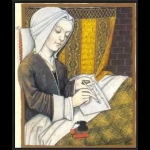Dear Doctor, I have read your play,
Which is a good one in its way,
Purges the eyes, and moves the bowels,
And drenches handkerchiefs like towels
With tears that, in a flux of grief,
Afford hysterical relief
To shatter'd nerves and quicken'd pulses,
Which your catastrophe convulses.
I like your moral and machinery;
Your plot, too, has such scope for scenery!
Your dialogue is apt and smart;
The play's concoction full of art;
Your hero raves, your heroine cries,
All stab, and everybody dies;
In short, your tragedy would be
The very thing to hear and see;
And for a piece of publication,
If I decline on this occasion,
It is not that I am not sensible
To merits in themselves ostensible,
But—and I grieve to speak it—plays
Are drugs—mere drugs, Sir, nowadays.
I had a heavy loss by Manuel —
Too lucky if it prove not annual—
And Sotheby, with his damn'd Orestes
(Which, by the way, the old bore's best is),
Has lain so very long on hand
That I despair of all demand;
I've advertis'd—but see my books,
Or only watch my shopman's looks;
Still Ivan, Ina and such lumber
My back-shop glut, my shelves encumber.
There's Byron too, who once did better,
Has sent me—folded in a letter—
A sort of—it's no more a drama
Than Darnley, Ivan or Kehama:
So alter'd since last year his pen is,
I think he's lost his wits at Venice,
Or drain'd his brains away as stallion
To some dark-eyed and warm Italian;
In short, Sir, what with one and t'other,
I dare not venture on another.
I write in haste; excuse each blunder;
The coaches through the street so thunder!
My room's so full; we've Gifford here
Reading MSS with Hookham Frere,
Pronouncing on the nouns and particles
Of some of our forthcoming articles,
The Quarterly—ah, Sir, if you
Had but the genius to review!
A smart critique upon St. Helena,
Or if you only would but tell in a
Short compass what—but, to resume;
As I was saying, Sir, the room—
The room's so full of wits and bards,
Crabbes, Campbells, Crokers, Freres and Wards,
And others, neither bards nor wits—
My humble tenement admits
All persons in the dress of Gent.,
From Mr. Hammond to dog Dent.
A party dines with me today,
All clever men who make their way:
Crabbe, Malcolm, Hamilton and Chantrey
Are all partakers of my pantry.
They're at this moment in discussion
On poor De Staël's late dissolution.
Her book, they say, was in advance—
'Tis said she certainly was married
To Rocca, and had twice miscarried,
No—not miscarried, I opine—
But brought to bed at forty nine.
Some say she died a Papist; some
Are of opinion that's a hum;
I don't know that—the fellow, Schlegel,
Was very likely to inveigle
A dying person in compunction
To try the extremity of unction.
But peace be with her! for a woman
Her talents surely were uncommon.
Her publisher (and public too)
The hour of her demise may rue,
For never more within his shop he—
Pray—was she not interr'd at Coppet?
Thus run our time and tongues away;
But, to return, Sir, to your play;
Sorry, Sir, but I cannot deal,
Unless 'twere acted by O'Neill.
My hands are full—my head so busy,
I'm almost dead—and always dizzy;
And so, with endless truth and hurry,
Dear Doctor, I am yours,
JOHN MURRAY


















Comment form: